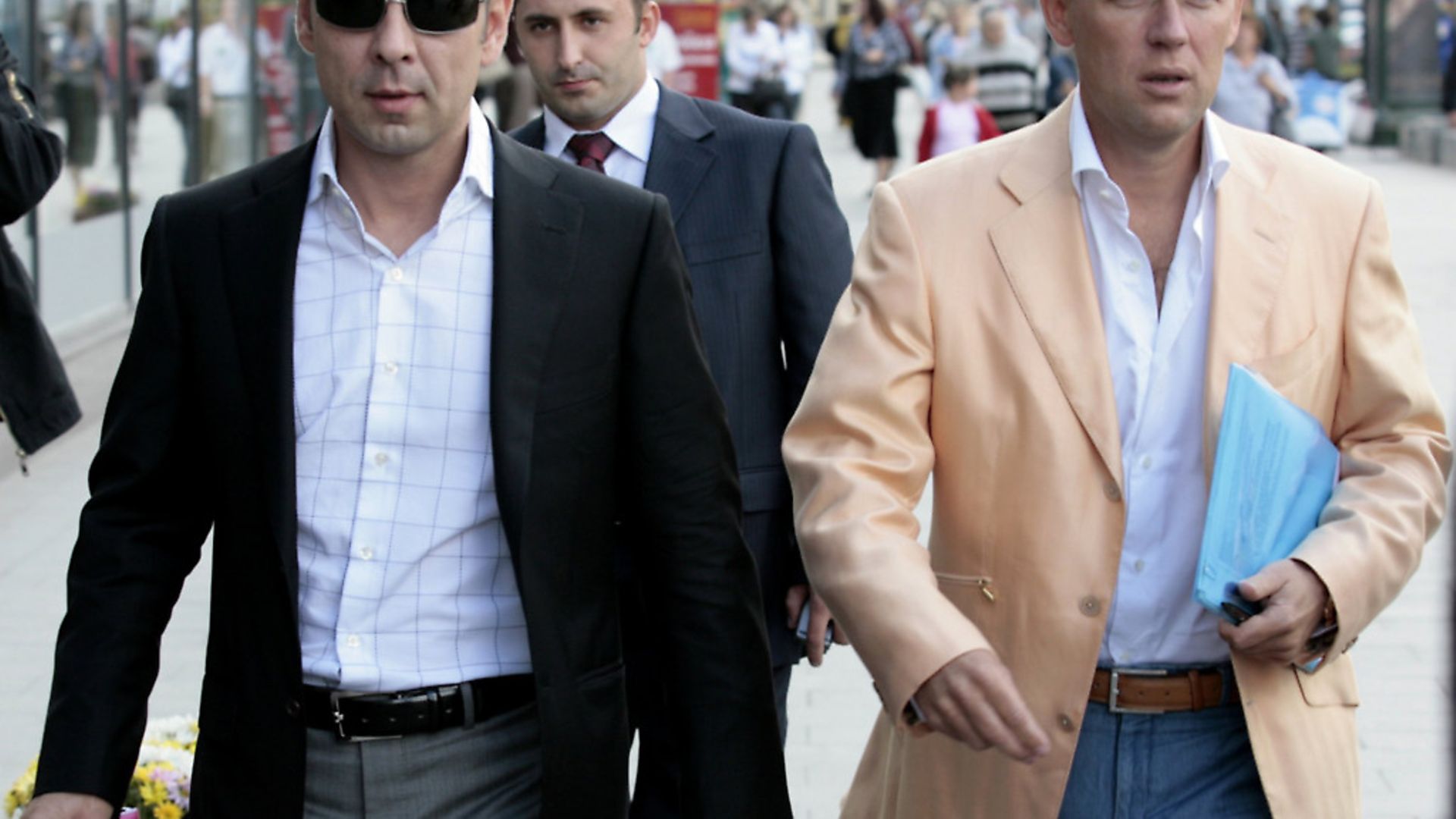
Whatever the truth behind the suspected poisoning of Russian double agent Sergei Skripal, former diplomat PAUL KNOTT has already seen – at very close quarters – exactly what the Russian regime is capable of.
The as yet unexplained sudden collapse of the exiled former Russian military officer Sergei Skripal and his daughter Yulia on the streets of Salisbury brings back sickening memories.
While working as a diplomat at the British Embassy in Moscow in the mid-2000s, I was asked to join a small, hand-picked team to work on the case of Alexander Litvinenko. Litvinenko was a former Russian Federal Security Service (commonly known by its Russian acronym, FSB) officer. Several years earlier, he had upset some of the most powerful people in Russia by revealing high-level corruption and their links to organised crime, before escaping to the UK. It turned out not to be far enough away from the grasp of the Russian regime.
On November 1 2006, Litvinenko fell seriously ill and was hospitalised in London. His slow and agonising death eventually came three weeks later. The cause of his demise was identified just hours before he died, when it was discovered he had been poisoned with a rare radioactive substance, polonium-210, that was only produced in Russia.
The Metropolitan Police Special Branch investigation into Litvinenko’s murder established that the poison had been put in his tea when he met two FSB agents posing as prospective business contacts, Andrei Lugovoi and Dmitry Kovtun, in the Millennium Hotel bar, in Mayfair.
The trail of spilled radiation Lugovoi and Kovtun had left between Russia and London even reached our embassy in Moscow. For reasons that were unclear, Lugovoi and Kovtun had come into the building to protest their innocence shortly after they were identified as suspects. We decided to check our offices and I arranged a discreet visit by a specialist radiation detection team from the UK to handle the task. Slipping the team into Moscow was made easier by their arrival on the same flight as the Special Branch squad. The Russian authorities had agreed to our request that the Met officers’ arrival should be low key with no media presence.
Characteristically, they failed to live up to their promise and the policemen were surrounded by Russian state television crews as soon as they came into the arrivals hall. The radiation detection team and I strolled unnoticed past the scrum around the Met. One large, gnarled copper was enjoying a post flight fag and I overheard him telling a Russian TV man, with a ‘Sweeney’-style mix of wit and menace, ‘please don’t point that camera at me, son, my mum doesn’t know I smoke’.
We kept the radiation detection team’s presence quiet from the rest of the embassy staff too, partly to avoid worrying anyone and partly to avoid leaks of the other kind. This meant I ended up sneaking around the dark and empty embassy in the middle of the night, accompanied by three people equipped with technical gear that I was sure I had last seen in Ghostbusters.
Sure enough, we found that everything Lugovoi and Kovtun had touched registered radiation. This included radioactive handprints on a chair and table where they had sat in one of the embassy’s meeting rooms. As soon as the radiation was discovered, we locked the meeting room. Apart from the fact that the contaminated furniture might be needed for evidence, I had no idea how to dispose of it. At first, the only advice I could elicit from London was that it would be a bad idea to burn radioactive waste at the back of the embassy compound, where so many people lived and worked.
Consequently, the furniture stayed in the locked meeting room for weeks. I spent that period pretending to have lost the keys and making increasingly ridiculous excuses to exasperated colleagues who did not know why the room was out of action.
Knowing Russia as we did, it seemed unlikely to us in the embassy that such an attack against a British citizen on British soil could have been conducted without high-level Russian state involvement.
The behaviour of the Russian authorities supported this judgement. They made it clear to us from the start that they would not allow the suspects to face charges and consistently obstructed the investigation.
An early indication that Lugovoi and Kovtun were being protected came when I was asked to inform the Russians that a plane about to fly from Moscow to London would be inspected on arrival. Traces of radiation had already been found on Lugovoi and Kovtun’s seats on the plane they flew on to meet Litvinenko in London. Now it had been discovered that they had made another trip during the same period on another aircraft. The investigators in London wanted to have a look at that plane too.
I called the Russian Ministry of Transport to tell them about the security inspection, in accordance with international civil aviation agreements. They rang me back soon afterwards and said that the flight had been cancelled due to ‘technical problems’. This was bad news for the poor passengers left stranded at the airport minutes before their flight was due to leave.
I initially thought it was a setback for the murder investigation too. But perhaps the Russian authorities taking such extreme measures to conceal evidence told us more than finding yet another radioactive fingerprint ever would have.
Working on the Litvinenko case was undeniably fascinating. But my overriding feeling about it was anger. Those responsible killed a man in an excruciatingly painful, drawn-out way. While doing so, they recklessly put many other innocent bystanders at risk.
It took almost three weeks to discover that Litvinenko had been killed with Polonium-210. Who knows how many people subsequently drank from the teapot in which it was placed before it was found? Or what effects the poison could have had on the bar staff who handled it? Incredibly, the killers also poured the substantial amount of lethal radioactive poison they had left over down the sink in their hotel room.
No doubt we will find out soon whether the Skripal incident is another example of the Putin regime’s extraordinary brutality, and its disregard for the British people and our national sovereignty.









